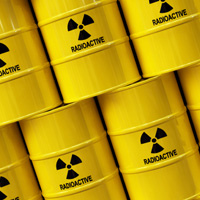This article originally appeared in The Chicago Tribune.
With control over about $230 million in annual grants and the power to anoint about two dozen "geniuses" every year, Robert Gallucci has one of the best jobs in Chicago: president of the John D. and Catherine T. MacArthur Foundation.
But none of the foundation's grants means as much to Gallucci personally as the $4 million being announced Thursday to prevent the spread of nuclear weapons.
Earlier this week, the loquacious former diplomat and professor sat in a rocking chair, dressed in a beatnik-style forest green turtleneck and black pants. But his theoretical musings sharpened when he pointed to his coffee cup and said, "The amount of material to make a weapon of the size that destroyed Nagasaki (Japan) … would fit in that cup."
During his 21 years in government, Gallucci, 65, served as the chief U.S. negotiator during the North Korean nuclear crisis of 1994 and helped lead Iraq's disarmament after the first Gulf War — experiences that have sobered him, he says.
Gallucci recalled pushing a German-obtained document across the table to Iraq's then-deputy foreign minister proving that the nation was hiding centrifuge components from inspectors. The minister huddled with his advisers, then told Gallucci that the items would be presented for inspection and destruction the next day.
"I said, 'You just told me you didn't have any more,' and he said, 'That's right.' 'Now you admit that you have them.' He said, 'That's right.' I said, 'You lied to me,' and he said, 'That's right.' … The Iraqis were impossible to shame in that way. But it would not have advanced discussions to have charged the North Koreans with lying, even if they had lied."
In a November speech to the City Club of Chicago, Gallucci sounded other warnings about everything from the polarization of politics to falling tax revenue and rising pension costs.
"I don't mean to be pessimistic, but I think if I were to take an hour to explain to you what nuclear terrorism is all about, you would be depressed," he said. "But I wouldn't be trying to depress you. I'd be trying to describe to you what the magnitude of the destruction is, how plausible it is, and how important it is that we work on this."



